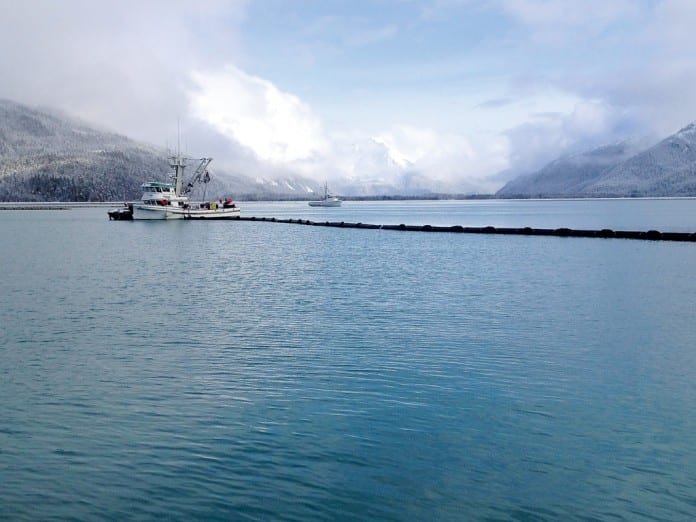
On the eve of the 30th anniversary of the Exxon Valdez oil spill disaster in Prince William Sound, scientists, economists and the fishing industry are still pondering what they have learned from the spill and how to deal with environmental disasters yet to come.
That was the subject of Alaska Sea Grant’s Feb. 20-21 conference in Anchorage, where those who participated in or later studied the cleanup effort in the area where some of that crude oil remains mulled over future options.
“The potential economic impacts of oil spills are complex,” said Gunnar Knapp, retired director of the University of Alaska’s Institute of Social and Economic Research, and an internationally recognized scholar on fisheries markets and management.
“Some people benefit from disasters … like oil spills and earthquakes,” Knapp said. “Oil spills generate a ton of spending. Hotels get filled. People are hired to do the work. It has a positive economic impact for some and a negative impact for others. That’s a problem.”
Knapp said one lesson that he took away from watching the aftermath of the oil spill is that there is something perverse in the way our legal system responds to such events.
Such situations cry out for cooperation, he said.
“What happened? How much oil spilled? What do we do? How do we make sure this never happens again? This is hard to know when everyone is already suing each other or preparing for a lawsuit,” he said. “What we saw play out was a failure of the justice system in the delay and uncertainty. We need fundamental reforms in how we deal legally with environmental disasters.”
“At the same time, disasters also create challenges and opportunities for science,” Knapp said.
Scientists seek the collection of data for baseline environmental research and nobody wants it, but the day after a spill happens everyone wants to know what’s going on, for someone to explain it all, for an accounting of how every single critter was affected, and there are big dollar signs attached to what people say the impact was, he said.
“So, you offer a professional opinion and are accused of being a shill for Exxon or the fishermen. The desire for objectivity for science is screwed,” he said. “Suddenly there is a lot of funding for research and science and that is good, but if you go and accept funding you are tagged. In this legal environment, that has potential to screw up objective research. We have to look for ways to fund neutral objective research.”
It is important to conduct baseline research on community economies and the seafood industry, in order to understand the impact of disasters on individuals, communities and businesses, he said.
Conference participants also discussed at length the importance of planning ahead for potential environmental disasters, taking into account changing and increased ship traffic in the Arctic and the need to prioritize bathymetric surveys, to learn more about the depth of water bodies, and where to locate disaster response equipment for immediate use, should a spill occur.
“All this information, however, is no good without a plan,” said Matt Melton, general manager of Alaska Chadux Corp., an oil spill response organization headquartered in Anchorage. “When bad things happen, we show up and try to make it a little better, or not a whole lot worse.”
Planning includes the logistics of figuring out how to accommodate a bunch of cleanup workers, considering all the hazards regarding fire, power outages, ice flows, he said. It is important not only to have a plan, but to test that plan, he said.
Among the participants in the conference were also representatives of the Prince William Sound Regional Citizens Advisory Council, formed in the wake of the March 24, 1989 disaster that resulted when the Exxon Valdez oil tanker ran aground on Bligh Reef, spilling an estimated 11 million gallons of North Slope crude oil into the Sound.
In addition to the devastating economic impact, the spill killed some 250,000 seabirds, 2,800 sea otters, 300 harbor seals, 250 bald eagles, up to 22 orca whales, and billions of salmon and herring eggs. The PWSRCAC is tasked with continuing to work with regulators, industry and affected communities to help prevent future oil spills and prepare to respond, should prevention measures fail.
“This year in particular we have seen many improvements and technological advancements, but there is still work to be done,” wrote President Amanda Bauer and executive director Donna Schantz in the PWSRCAC’s 2018 annual report. “We must remain vigilant to avoid the creep of complacency as memories of 1989 fade and oversight becomes more relaxed.”














